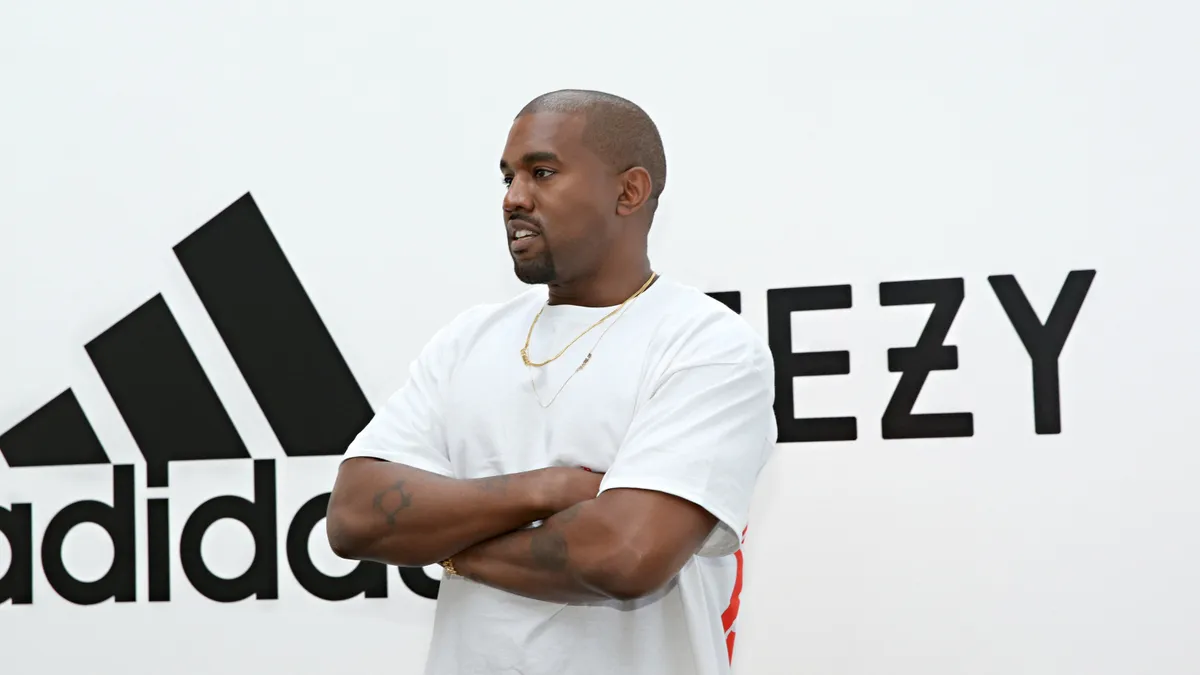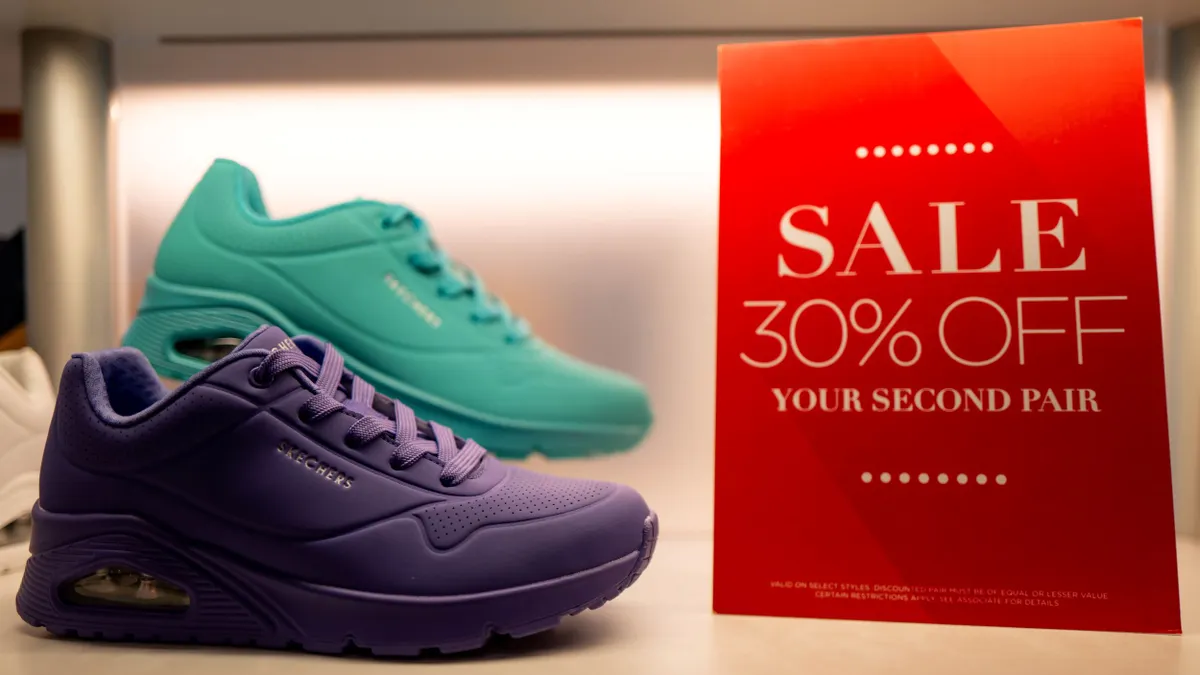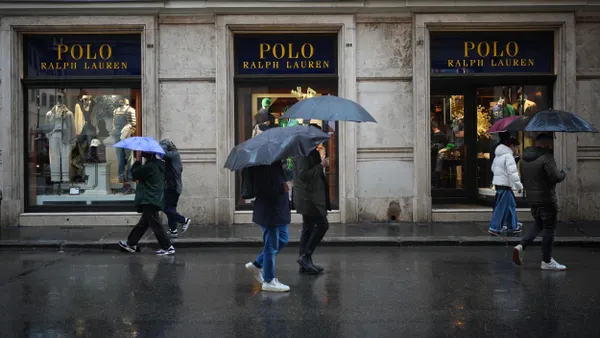Dive Brief:
- The class-action lawsuit against Adidas was revised to include an additional focus on the company’s alleged failure to meet certain non-financial reporting requirements regarding the offensive comments made by Ye, the rapper formerly known as Kanye West, according to an amended complaint filed last week.
- The complaint — which was filed with a district court in Oregon on Oct. 17 and builds on the charges from the original lawsuit filed in April — also alleges Adidas failed to disclose material risks to shareholders in connection with its Yeezy footwear partnership.
- The sports brand was also accused of making “materially false or misleading statements and omissions” around Ye’s “anti-Semitic and racist comments” during the class period of May 3, 2018 to Feb. 21, 2023 — which undermined its commitment to diversity, equity and inclusion, and artificially inflated its stock until media coverage around Ye caused it to fall.
Dive Insight:
The original lawsuit filed by HRSA-ILA Funds alleged the German sportswear manufacturer knew about Ye’s problematic behavior years before it decided to end its partnership with him in October 2022.
According to the lawsuit, investors seek to recover damages from Adidas, claiming it violated the Securities Exchange Act when it didn’t disclose the risks associated with its partnership with Ye to shareholders in time. During the Adidas-Ye collaboration, Ye made several statements about slavery, politics, racial issues, in addition to making numerous explicit anti-Semitic remarks.
The plaintiff alleged that this was particularly alarming as Adidas’ annual reports indicated that the company “understood that this ESG topic was material to its stakeholders and required disclosure.” The lawsuit also states former Adidas CEO Kasper Rørsted was “motivated to mislead investors about [Ye’s] misconduct and the risks it posed” because his compensation was directly tied to both the company’s ESG performance and net income.
Adidas eventually issued a statement condemning Ye’s behavior when it ended its yearslong partnership with him, calling his actions “unacceptable, hateful and dangerous” and in violation of the “company’s values of diversity and inclusion, mutual respect and fairness.”
In a statement responding to the original lawsuit, however, Adidas said, “We outright reject these unfounded claims,” adding that the company “will take all necessary measures to vigorously defend ourselves against them.”
This is not the first time the company has landed in hot water regarding its ESG claims. Adidas and sports footwear brand New Balance were accused of greenwashing last year when French environmental nonprofit Zero Waste France filed a complaint alleging the shoe manufacturers used “deceptive marketing practices” to promote their products as environmentally friendly despite changing “almost nothing to their production model.”
The NGO alleged that though Adidas uses slogans such as “end plastic waste” and says its products help reduce the carbon footprint of customers who purchase them, it does not provide any insight on the “technical impossibility of its infinite recycling” practices and the negative environmental impact of using recycled polyester.












